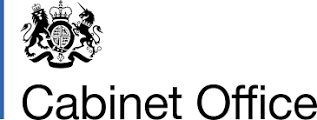PRESS RELEASE : UK Co-Sponsored Conference on Holocaust Distortion and Education in Bucharest [November 2024]
The press release issued by the Foreign Office on 18 November 2024.
The conference brought together experts on law, tech, and Holocaust remembrance and education, with a focus on the challenges and opportunities posed by artificial intelligence.
On 29th October in Bucharest, the UK Presidency of the International Holocaust Remembrance Alliance (IHRA) co-sponsored a conference on current and emerging challenges in Holocaust distortion and education, alongside Romania, the United States, and the OSCE’s ODIHR.
Examining the impact of emerging technologies on Holocaust denial and distortion is a key priority of the UK’s IHRA Presidency, and this conference followed a commitment made at the most recent IHRA plenary meeting hosted by the UK presidency in Glasgow in June, to step up action and build greater expertise on this subject.
In introductory remarks, Lord Pickles, UK Special Envoy on Post-Holocaust Issues, noted the appositeness of the conference being held in Bucharest, where the IHRA Working Definition of Antisemitism was negotiated and adopted. He paid tribute to the late Ambassador Mihnea Constantinescu, who was vital in achieving this adoption.
The power of generative AI, and its potential capacity to both facilitate and counter Holocaust distortion, was a key focus of the day. Delegates explored the use of AI in interactive Holocaust testimony projects and the possibility of broadening the audience for these projects through AI language dubs, while acknowledging the ethical concerns of dubbing the testimony of survivors who are no longer with us. Panellists also discussed instances of generative AI models being oversensitive to Holocaust distortion, refusing to depict the Holocaust in any form and thereby potentially rendering it invisible.
Educators from a wide range of backgrounds and institutions, including UNESCO and the U.S. Holocaust Memorial Museum, shared their approaches to making Holocaust education as engaging and relevant as possible to their respective audiences. Ligia Deca, Romanian Minister of Education, offered reflections on Romania’s compulsory secondary education module ‘History of the Jews – The Holocaust’, taught for the first time in the 2023 academic year, and delegates agreed on the importance of having educators situate the Holocaust within the wider context of Jewish life and history. The conference also provided an opportunity for educators to discuss the impact of the 7 October 2023 Hamas terror attack against Israel and the Israeli military operation in Gaza on Holocaust education, and to share best practice on navigating the challenges that have subsequently emerged.
The outcomes of this conference will provide a foundation for further discussions on the role of emerging technologies in Holocaust distortion and education at the next IHRA plenary meeting hosted by the UK Presidency in December.

